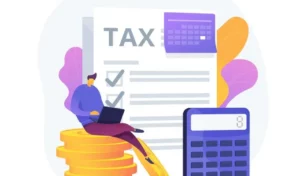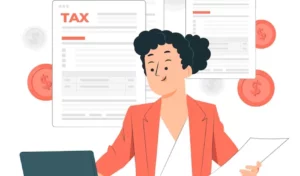In today’s complex financial landscape, managing tax obligations can be a daunting task for individuals and businesses alike. The IRS Fresh Start Program is a lifeline for those facing tax-related challenges and tax problems, offering a pathway to ease the burden and regain financial stability. This comprehensive guide will walk you through the ins and outs of the IRS Fresh Start Program, shedding light on its eligibility criteria, benefits, and how it can be your ticket to getting tax debt relief and a fresh financial start.
Understanding Tax Troubles
Introduction to Tax Debts
Tax debts can accumulate for various reasons, including unpaid taxes, penalties, or interest. These debts can quickly spiral out of control, leading to financial distress and legal consequences.
The Weight of Federal Tax Liens
Tax liens are legal claims against your property when you fail to pay your tax debts. They can affect your credit score and make it challenging to secure loans or mortgages.
The Birth of the IRS Fresh Start Initiative
Inception and Purpose
The IRS Fresh Start Tax Program was launched in 2011 to provide relief to taxpayers struggling with their tax obligations. The IRS Fresh Start Tax Program was introduced in 2011 to offer assistance to taxpayers who were facing difficulties in meeting their tax obligations. The program aimed to alleviate the financial burden on individuals, making it easier for them to settle their tax debts. It included several measures such as the expansion of the streamlined installment agreement and an increase in the threshold for the streamlined installment agreement without needing financial documentation. Moreover, in some cases, taxpayers were allowed to pay their tax liabilities in monthly installments rather than facing immediate payment requirements.
The Fresh Start Program also provided relief for those who were struggling with a tax lien on their property. Through the program, eligible taxpayers could request a withdrawal of the tax lien if they met certain criteria. Overall, the IRS Fresh Start Tax Program aimed to provide much-needed relief to taxpayers and help them get back on track with their tax obligations. Its primary goal is to help taxpayers pay their taxes and settle their debts while avoiding severe financial repercussions and financial hardships.

Eligibility Criteria
To benefit from the program, you must meet specific eligibility criteria, including your outstanding tax debt amount and filing status. Firstly, the program requires individuals to have a specific outstanding tax debt amount. This criteria ensures that those who have a considerable amount of tax debt are given priority and can receive the assistance they need.
Additionally, your filing status plays a role in determining your eligibility for the program. Different filing statuses may require different documentation or have different requirements. This ensures that the program is fair and accessible to individuals regardless of their marital status or living situation. Meeting these eligibility criteria is crucial as it determines whether or not you can take advantage of the benefits offered by the program. Therefore, it is essential to review the specific requirements and ensure that you fulfill them in order to fully benefit from the program.
Advantages of the IRS Fresh Start Program
Reduced Payment Options
The program can reduce the amount you owe and make it more manageable through various payment options. These options may include negotiating with creditors to lower your overall debt, setting up a monthly payment plan based on your current financial situation, or even consolidating multiple debts into a single, more affordable payment.
By reducing the amount you owe, this program allows you to make progress toward becoming debt-free without feeling overwhelmed by the repayment process. It provides a structured and achievable path out of debt, giving you the confidence and peace of mind you need to take control of your financial future.

Removal of Tax Liens
IRS Fresh Start Program can assist in the removal of tax liens, potentially improving your credit score. A tax lien is a claim that the IRS places on a taxpayer’s property to ensure the payment of back taxes. Having a tax lien on your record can negatively impact your credit score and make it difficult to secure loans or credit. However, through the Fresh Start Program, taxpayers may be able to have their tax liens withdrawn if they meet certain criteria.
This can be a significant improvement for individuals looking to rebuild their credit. By having the tax lien removed, it shows potential lenders that you are taking steps to resolve your tax debt and can be more trustworthy in managing your financial obligations. It is important to note that the Fresh Start Program does not automatically remove tax liens, but it provides an opportunity for taxpayers to request their withdrawal and potentially improve their credit score. This is a crucial step if you can’t pay your tax bills and want to get a fresh start.
IRS Fresh Start Program Qualifications
Apply For the IRS Fresh Start Program Payment Plans
If you owe back taxes to the IRS, you may qualify for the IRS Fresh Start Program. This program offers relief to taxpayers by providing them with various options to settle their tax debt.
- The Fresh Start Program includes several initiatives, such as the Installment Agreement, Offer in Compromise, and Penalty Abatement.
- The Installment Agreement allows taxpayers to pay off their tax debt over time through monthly installments. This is especially beneficial for those facing financial difficulties and struggling with their tax returns.
- The Offer in Compromise program enables eligible taxpayers to settle their tax debt for less than the full amount owed. This option is advantageous for those looking to resolve their tax debt for less and gain tax relief.
- The Penalty Abatement option allows taxpayers to request the removal of certain penalties imposed on their overdue taxes.
To apply for the Fresh Start Program, you will need to complete and submit the appropriate forms to the IRS. It is important to carefully review the requirements and guidelines for each option to determine which program is most suitable for your specific situation. Seeking professional advice from a tax advisor or an enrolled agent may also help you navigate the application process and maximize the benefits of the Fresh Start Program.

Qualify for the Program Successfully
In order to successfully qualify for the IRS Fresh Start Program, there are a few key requirements that need to be met.
- Firstly, individuals must have filed all required tax returns for the previous years. This means ensuring that all income and deductions are accurately reported and any outstanding tax liability is settled.
- Taxpayers need to be current with their estimated tax payments and have made all required federal tax deposits if they are business owners.
- Taxpayers with an outstanding tax liability of more than $50,000 may be required to provide financial information to the IRS to determine their eligibility for the program.
- Lastly, individuals must demonstrate a willingness and ability to make the necessary payments for their outstanding tax debt.
By meeting these qualifications, individuals can avail of the benefits provided by the IRS Fresh Start Program, such as reduced penalties and easier installment agreement terms.
Staying Compliant
Enrolling in the IRS Fresh Start Program to receive certain benefits can be advantageous, but it is crucial to remember that staying compliant with tax obligations is of utmost importance during this period. Failing to meet tax requirements can have severe consequences, including potential financial penalties, loss of benefits, or even legal ramifications.
- It is vital to accurately report income, deductions, and any other relevant tax information to the appropriate tax authorities while remaining enrolled in the program.
- This includes filing any unfiled tax returns and keeping detailed records for future reference.
- It is also wise to stay informed about any changes in tax regulations that may affect the program’s benefits.
By staying compliant with tax obligations, individuals can fully enjoy the advantages of the program while avoiding any potential setbacks or complications that may arise in the future.
Reaping the Rewards
Understand how successfully completing the program can lead to a fresh financial start and peace of mind. If you owe the IRS, taking advantage of these tax help options can make a significant difference in your financial situation and Internal Revenue Service compliance.
Penalty – IRS Fresh Start program
One aspect of the program is the penalty relief offered to eligible individuals. Under this relief, taxpayers may be able to have some of their penalties waived or reduced. This can be a significant benefit for those who have accumulated substantial penalties due to late payment or failure to file their tax returns. However, it is important to note that not all taxpayers will qualify for penalty relief.
To be eligible, taxpayers must meet certain criteria set by the IRS, such as having an income below a certain threshold or owing a specific amount in tax debt. Additionally, the program does not eliminate the actual tax debt owed but rather provides relief from penalties associated with the debt.
Overall, the penalty relief offered through the IRS Fresh Start Program can provide much-needed assistance to taxpayers struggling to meet their tax obligations.

Conclusion
In conclusion, the IRS Fresh Start Program is a valuable resource for individuals and businesses facing tax-related challenges. It offers a lifeline by providing reduced payment options, removing tax liens, and potentially settling debts for less than the full amount owed. By following the program’s guidelines and staying compliant, you can pave the way for a brighter financial future.
Frequently Asked Questions (FAQs)
- Who is eligible for the IRS Fresh Start Program?
- Eligibility depends on factors such as the amount of outstanding tax debt and filing status. Consult the IRS guidelines for specific criteria.
- How does the program help with tax liens?
- The program can assist in the removal of tax liens, potentially improving your credit score and financial prospects.
- What are the payment options available under the program?
- The program offers various payment options to make your tax debt more manageable.
- Can tax debts be settled for less than the full amount owed?
- Yes, the program may allow for debt settlement for less than the full amount through an Offer in Compromise.
- How long does it take to complete the IRS Fresh Start Program?
- The duration varies depending on individual circumstances, but successfully completing the program can lead to a fresh financial start.








